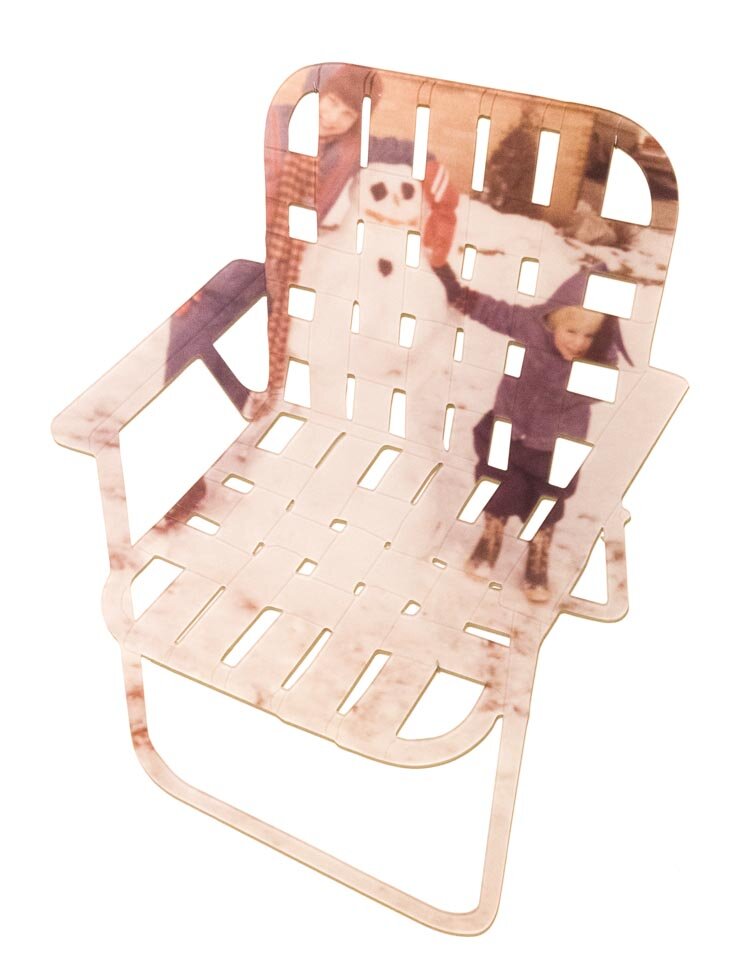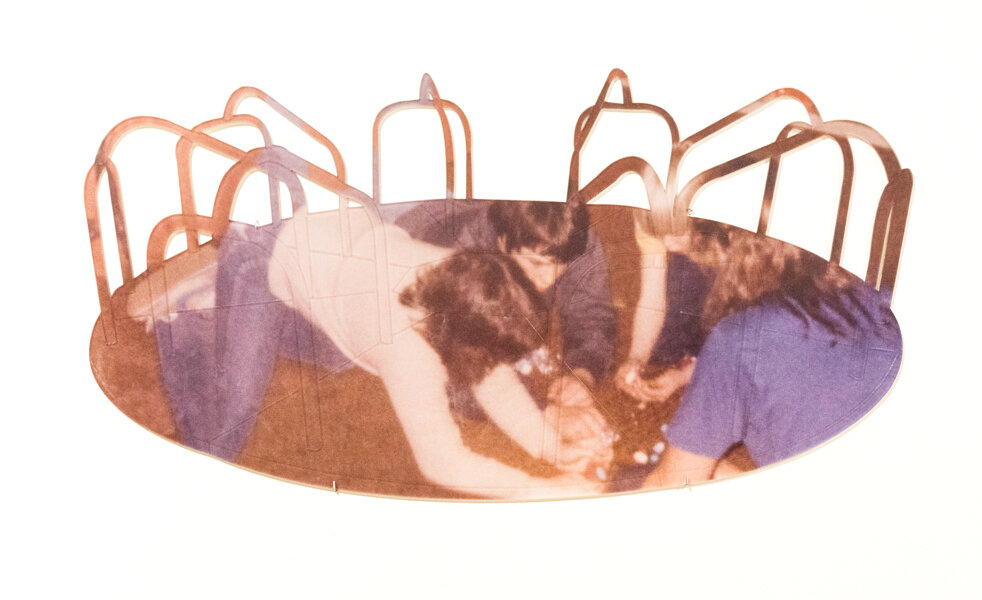Libby Rowe
Libby Rowe is an artist working in photography, sculpture, interactive installation, and performance. Her artwork explores ideas of identity and belonging through self-definitions as informed by social and domestic constructs. Rowe is interested in breaking from traditional presentation strategies for photographs to engage viewers in a more interactive experience as well as the role of the photographic image in relation to other media. Through pink, Rowe explores the sociological, physiological and psychological aspects of femininity using image, object and installations. Rowe’s performances were included in the Vertigo Performance Series at the Waterloo Center for the Arts and Fountain Art Fair New York in 2014. Rowe’s current photographic series, Inside/Out and the installation (sub)Division were recently exhibited together at United Photo Industries in Brooklyn New York and were exhibited with Like Panes of Glass at Morlan Gallery in Lexington, KY.
Rowe received her BFA from the University of Northern Iowa and her MFA from Syracuse University. She resides and works in San Antonio, Texas.
Like Panes of Glass
Like Panes of Glass explores the memorial construct of the modern family as an ideal and a reality. Having grown up in the Midwest during the 1970s and 1980s in a family of five, I experienced “The American Dream” in all its idyllic glory. Loving, kind, supportive parents, a sister and a brother, a dog and multitudes of hamsters, really, who could ask for more? Over the years I have watched my perfect family and the perfect families of my friends crack and fade into the dysfunctional state of the contemporary American family. How did this happen to us?
The images, though drawn from my family albums, represent the idealized mode of the perfect family. Framed by the platonic shapes of domestic items, the images are trimmed and curated to conceal or delete imperfections, manufacturing an ideal family unit. Parts of the memories informed by the photographs are conveniently shaved away.
The stencils are all drawn from objects that are purchasable; the products both denote the wholesomeness of family life and connote social and financial status.
Not only do you have a grill, but you have the perfect grill. The implication that having the right collection of products will align you with the best of your neighbors also acts to construct your identity, albeit the empty, previously-digested identity of the consumer. The stencils objectify the false sense of domestic normalcy: neither the memory nor the present can possibly conform to an ideal without fracturing.









